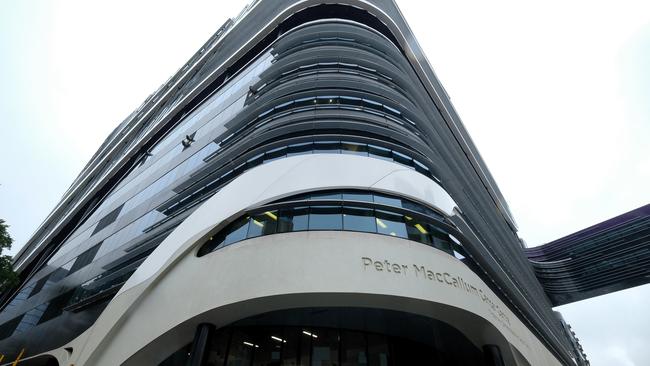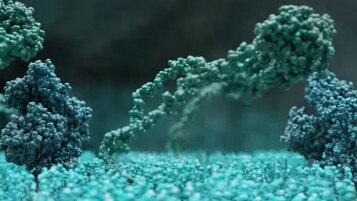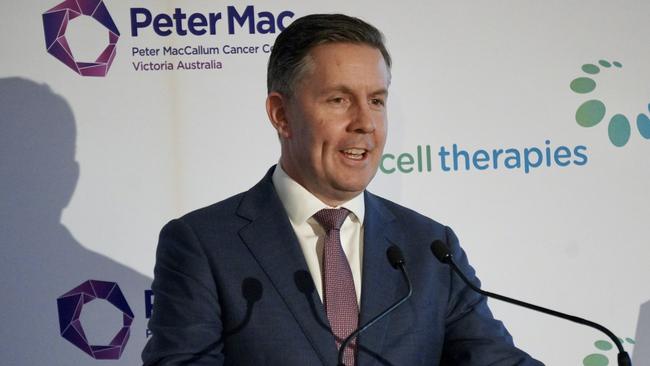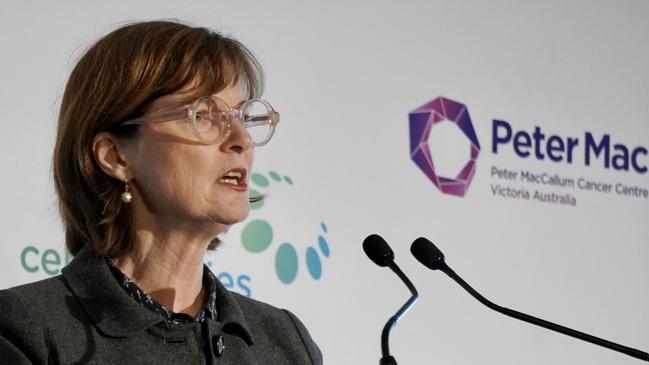Peter Mac increases manufacturing centre for gene therapy bringing new hope to cancer patients
Australia’s first biomedical manufacturing facility has opened in Melbourne and will boost lifesaving therapy for cancer patients by 400 per cent.

Victoria
Don't miss out on the headlines from Victoria. Followed categories will be added to My News.
The country’s first biomedical manufacturing facility in Melbourne will increase the production of lifesaving cell and gene therapy doses for cancer patients by 400 per cent.
Opening a new laboratory at the commercial-scale facility at Peter MacCallum Cancer Centre has also created 75 new jobs.
This latest addition to the $105m Cell and Gene facility at the Centre of Excellence in Cellular Immunotherapy was opened on Tuesday. It will see up to 2000 chimaeric antigen receptor T (CAR-T) cell or other cell or gene therapy patient doses made every year — up from 400 doses.

A dedicated patient facility will also open later this year allowing patients to receive these unique therapies at Peter Mac.
CAR-T cells offer blood cancer patients hope where other therapies have failed by providing tailored immune killer cells against their own cancer.
Called a cornerstone of modern immunotherapy, this “living drug” offers personalised medicine in a one-off therapy designed to “persist” in the patient for as long as the tumour remains, preventing a relapse.

At Tuesday’s opening Federal Health Minister Mark Butler said it was inspiring to see how much individualised cancer treatments, being developed and manufactured in Melbourne, ccould change people’s lives.
Victorian Health Minister Mary-Anne Thomas says Victoria is home to a world-class health and medical research community.
“And we are always looking to support out brightest minds as they continue making life-changing scientific breakthroughs and improving health outcomes for people here, and around the world,” she said.

Run by Peter Mac in partnership with Cell Therapies, the manufacturing facility is designed to link in-house research and development to patient care.
Shelley Dolan, the chief executive of Peter Mac, said completing the manufacturing expansion was a major step forward for cancer patients.
Director of the Centre of Excellence in Cellular Immunotherapy, Professor Simon Harrison, added that CAR T-cell therapy represented the pinnacle of personalised medicine as it involves collecting a patient’s own immune cells, re-engineering these cells so they recognise cancer, and infusing these reengineered cells back into the patient.
Associate Professor Dominic Wall, the Acting Chief Executive of Cell Therapies, said the pandemic and global unrest had demonstrated the vulnerability of global supply chains and the value of onshore manufacturing capability.
“These expanded facilities at Peter Mac are now on par with only a handful of sites globally and combined with a highly specialised workforce, mean we have the ability to make more of these cutting-edge treatments locally, rather than importing them, and to even export these products,” he said.
The funding included $80 million from the Federal Government, and the additional $25 million by Peter Mac and donors to the Peter MacCallum Cancer Foundation to
advance cellular therapy research and patient care activities.





